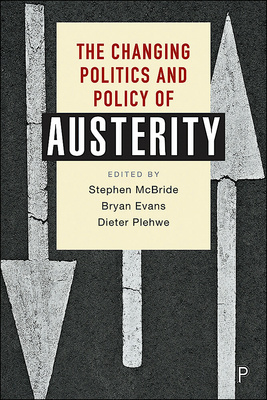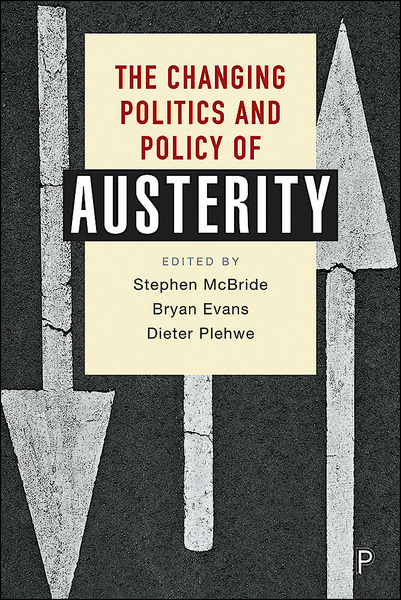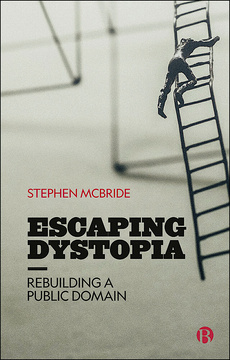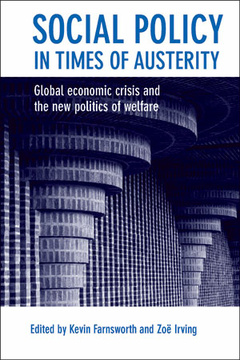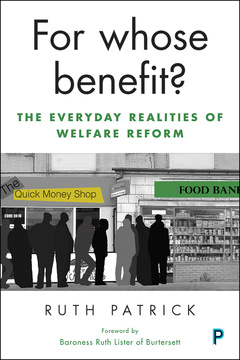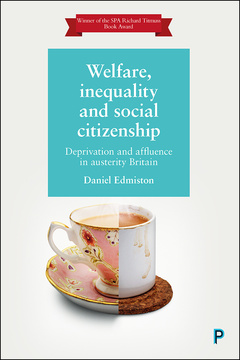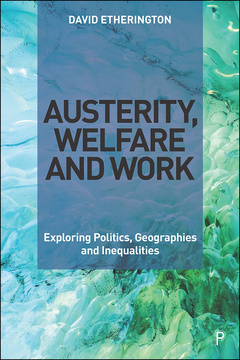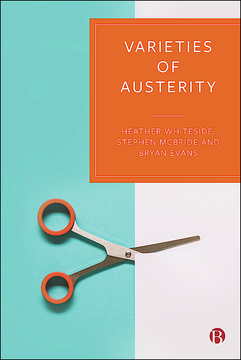The Changing Politics and Policy of Austerity
Edited by Stephen McBride, Bryan Evans and Dieter Plehwe
Published
Sep 30, 2021Page count
326 pagesISBN
978-1447359517Dimensions
234 x 156 mmImprint
Policy PressPublished
Sep 30, 2021Page count
326 pagesISBN
978-1447359524Dimensions
Imprint
Policy PressPublished
Sep 30, 2021Page count
326 pagesISBN
978-1447359524Dimensions
Imprint
Policy PressIn the media
On our blog: 'Building back better: Will a return to normal mean a return to austerity?'
This collection of original essays explores the myriad expressions of austerity since the 2008 financial crisis.
Case studies drawn from Canada, Australia and the European Union provide extensive comparative analysis of fiscal consolidation and the varied political responses against austerity. Contributions examine such themes as privatization, class mobilization and resistance, the crisis of liberal democracy and the rise of the far right.
The potential impact of the COVID-19 pandemic in shaping future austerity and alternatives is signalled. Given the rapidly shifting terrain, this comprehensive handbook provides important insights into a complex and fast-changing period of politics and policy.
Stephen McBride is Canada Research Chair in Public Policy and Globalization and Professor in the Department of Political Science at McMaster University, Hamilton, Canada.
Bryan Evans is Professor in the Department of Politics and Public Administration at Ryerson University, Toronto, Canada.
Dieter Plehwe is Senior Research Fellow in the Center for Civil Society Research, WZB, Berlin Social Science Center and Privatdozent (Private Lecturer) in the Department of Political Science at the University of Kassel, Germany.
Introduction: The changing politics and policy of austerity - Bryan Evans, Stephen McBride and Dieter Plehwe
Part 1: Austerity and the promotion of the private
1. Beyond austerity: pro-public strategies versus public-private partnerships scandals - Heather Whiteside
2. Institutionalizing austerity accounting in Europe: The implementation of European Public Sector Accounting Standards (EPSAS) as crisis response - Sebastian Botzem
Part 2: Coping and casualties: Labour and the social
3. A fragile triangle: Collective bargaining systems, trade unions and the state in the EU - Steffen Lehndorff
4. Privatizing the sacrifice: Individualized funding, austerity and precarity in the voluntary sector in Australia and Scotland - Donna Baines, Ian Cunningham, Philip James and Chandrima Roy
5. Austerity and the social innovation agenda - Meghan Joy, John Shields, Sharon Broughton and Siu Mee Cheng
Part 3: Beyond coping: Protest, pathologies and the development of real alternatives
6. Politics as an alternative to constitutionalization - Stephen McBride and Joy Schnittker
7. There could be alternatives! German economic advisory councils and the institutional reproduction of austerity economics - Dieter Plehwe and Moritz Neujeffski
8. Negotiated austerity? A comparative survey of social concertation in Canada, Denmark, Ireland and Spain - Bryan Evans, Stephen McBride and James Watson
9. Market populism, its right-wing offspring and left alternatives - Ingo Schmidt
10. Austerity-induced populism: the rise and transformation of the new right - Hans-Jürgen Bieling
11. Reducing the burden: International struggles against illegitimate debt - Christoph Sorg
12. The crisis next time: the GFC and the continuing fragility of capitalism - Jim Stanford
13. Austerity after COVID-19: Towards inclusive economic governance in Europe - Hans-Jürgen Urban and Sebastian Bödeker
14 Conclusion - Stephen McBride, Dieter Plehwe and Bryan Evans







